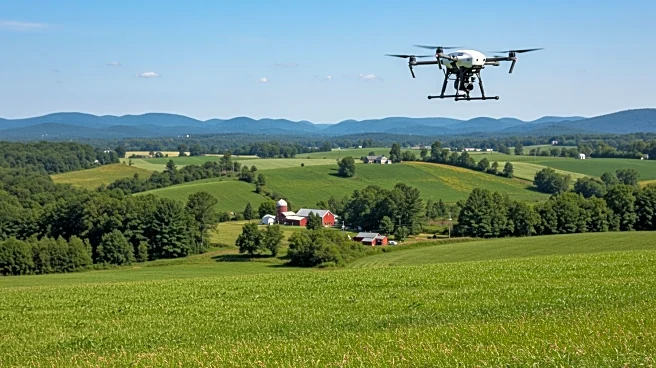What is the story about?
What's Happening?
Vermont farmers are increasingly adopting new technologies to enhance agricultural productivity and sustainability. At Doe's Leap Farm in East Fairfield, George Van Vlaanderen utilizes GPS-enabled collars for his goats, eliminating the need for physical fencing. This technology allows goats to graze more efficiently, increasing milk production by accessing diverse nutrition across the farm. The University of Vermont's Dairy Farm continues to teach traditional cow raising and milking practices, although robotic milking is gaining popularity in commercial farms. Vermont Senate Agriculture Committee Chair Russ Ingalls emphasizes the importance of technology in sustaining the state's farming industry amid a decline in the number of farms.
Why It's Important?
The integration of technology in Vermont's agriculture sector is crucial for maintaining competitiveness and sustainability. By reducing labor costs and increasing productivity, these innovations can help farmers adapt to economic pressures and environmental challenges. The decline in the number of farms in Vermont highlights the need for technological advancements to ensure the viability of the agricultural industry. As traditional methods are supplemented with modern technology, farmers can optimize resources and improve output, potentially reversing the trend of farm closures.
What's Next?
The adoption of technology in Vermont's agriculture is expected to continue, with potential expansion into other areas of farming. As more farmers recognize the benefits of these innovations, there may be increased investment in technological solutions. The University of Vermont may consider incorporating robotic milking into its curriculum to prepare students for future industry demands. Policymakers and industry leaders will likely focus on supporting technological advancements to ensure the sustainability of Vermont's agriculture sector.

















